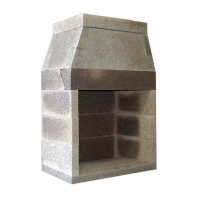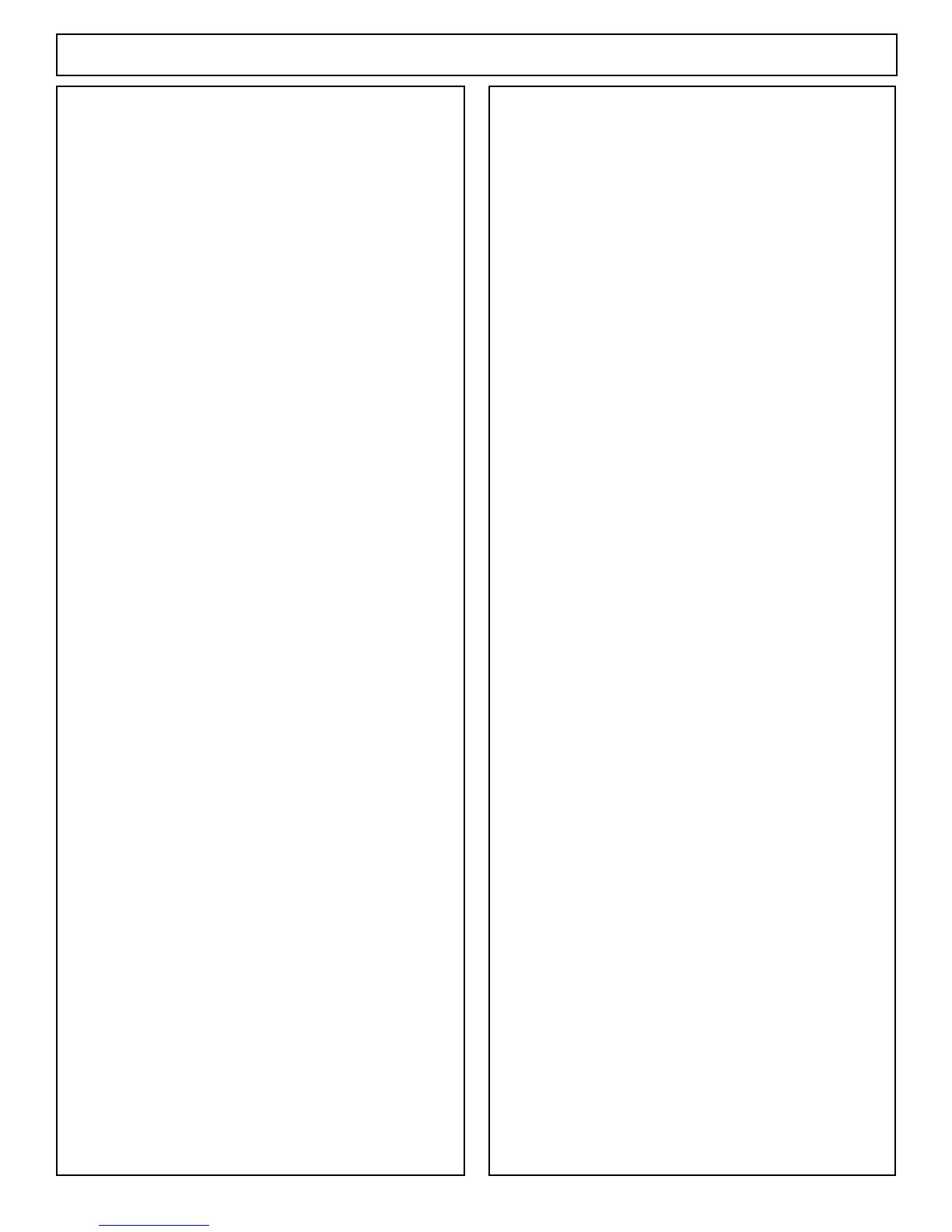70
Summary
WARNING:
Never use gasoline, gasoline type lantern fuel,
kerosene, charcoal lighter uid or other similar liquids to start
or “freshen up” the re in this replace or in any replace.
WARNING:
If processed solid fuel relogs are used: Do not poke
or stir the logs while they are burning. Use only relogs that
have been evaluated for the application in replace and refer
to relog warnings and caution markings on packaging prior to
use.
5. Avoid over-ring this replace. Some examples of over-
ring are:
a. Burning of scrap lumber, construction debris, pine branches
and brush or cardboard boxes;
b. Burning small diameter twigs, branches or any
other small sized combustible materials in quantities which
exceed the volume of the normal log re;
c. Use of articial wax base logs, trash or other chemicals or
chemically treated combustibles.
WARNING: Over-ring can permanently damage this
replace system.
6. Fireplace Doors and Screens:
This replace has not been tested for use with doors.
To reduce the risk of re or injury, do not install doors. If
doors are required by the local authority having jurisdiction
then doors must be kept in the fully open position when the
replace is in operation. Isokern does not limit the use of
replace screens.
7. Disposal of Ashes:
It is recommended that the rebox be cleaned of
excessive ashes before each use. It is necessary to remove
ashes from the open front of the replace. To do so, proceed in
the following manner:
Allow the re to go out and the ashes to cool for at
least six to eight hours.
After the cooling period carefully pick up the ashes
from the rebox with a small, metal replace shovel or other
metal scoop and place them in a metal container with a tight
tting lid.
If possible do not sweep the ashes as this will stir
them into the air and disperse them into the room.
The closed container of ashes should be placed on
a noncombustible oor or on the ground, well away from all
combustible materials, pending nal disposal. If the ashes are
disposed of by burial in soil or otherwise locally dispersed,
they should be retained in the closed container until all cinders
have thoroughly cooled.
8. Inspection and Cleaning:
At least twice a year in warm climates or monthly
during the heating season in colder climates, thoroughly inspect
the Fire-Lite replace and chimney system. Chimneys must be
installed so that access is provided for inspection and cleaning.
The chimney should be inspected monthly during the heating
season.
Inspect the entire ue from the top down for
obstructions such as birds’ nests, leaves, etc. Such obstructions
must be removed.
Check spark arrestor screens for clear ow of smoke
every two to four weeks during the heating season. Inspect the
ue periodically during the heating season for the presence of
soot and creosote build up. If creosote or soot has accumulated,
it should be removed to reduce the risk of chimney re.
Have your chimney cleaned by a professional chimney
sweep if you have doubts about your ability to do it. Use a
plastic, wood or steel brush to clean the chimney. Scrub the
spark arrestor/chimney cap with a wire brush. Remove any
chimney cap for ue cleaning from the top. Open the damper in
the rebox for cleaning access from below.
Clean the inner portion of the ue by using a exible
handled chimney cleaning brush.
For straight run ue the proper size brush can be pulled
up through the ue from the rebox with the damper open.
If the chimney has an offset chimney section, brush
cleaning from the chimney top down to the offset/return and
then from the rebox up to the offset section is the proper
method.
In either case, cover the replace opening with a damp
sheet (sealed to the opening with masking tape) before brush
cleaning. Do not remove sheet until the soot has settled. It is
advised to vacuum loosened soot. Do not sweep loosened soot
as sweeping will disperse soot into the air and about the room.
WARNING: Do not use chemical replace and chimney
cleaners that are poured on a hot re. These can be dangerous
and generally work only on the ue section nearest the re,
leaving the rest of the ue unaffected.
9. Exterior Maintenance:
Annually, at a minimum, check all metal ashings and
weather seals around the exterior chimney where it penetrates
the roof surface; inspect any chimney top spark arrestors, metal
cowlings and weather hoods to make sure they are secure and
weather tight.
Seal any cracks or gaps in chimney-to-roof ashings
to prevent possible roof and chimney chase leaks. Inspect any
cement chimney cap or clay chimney pot terminations to make
sure they are not diverting water into the structure. Seal any
suspected cracks or gaps in these masonry components.

